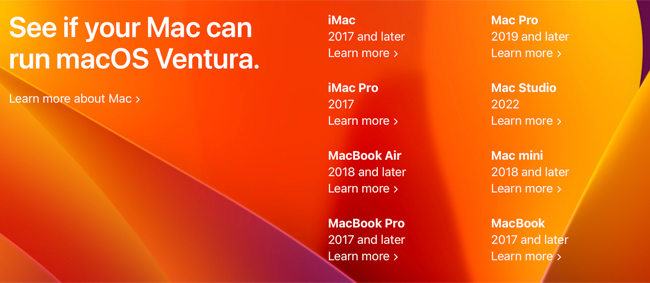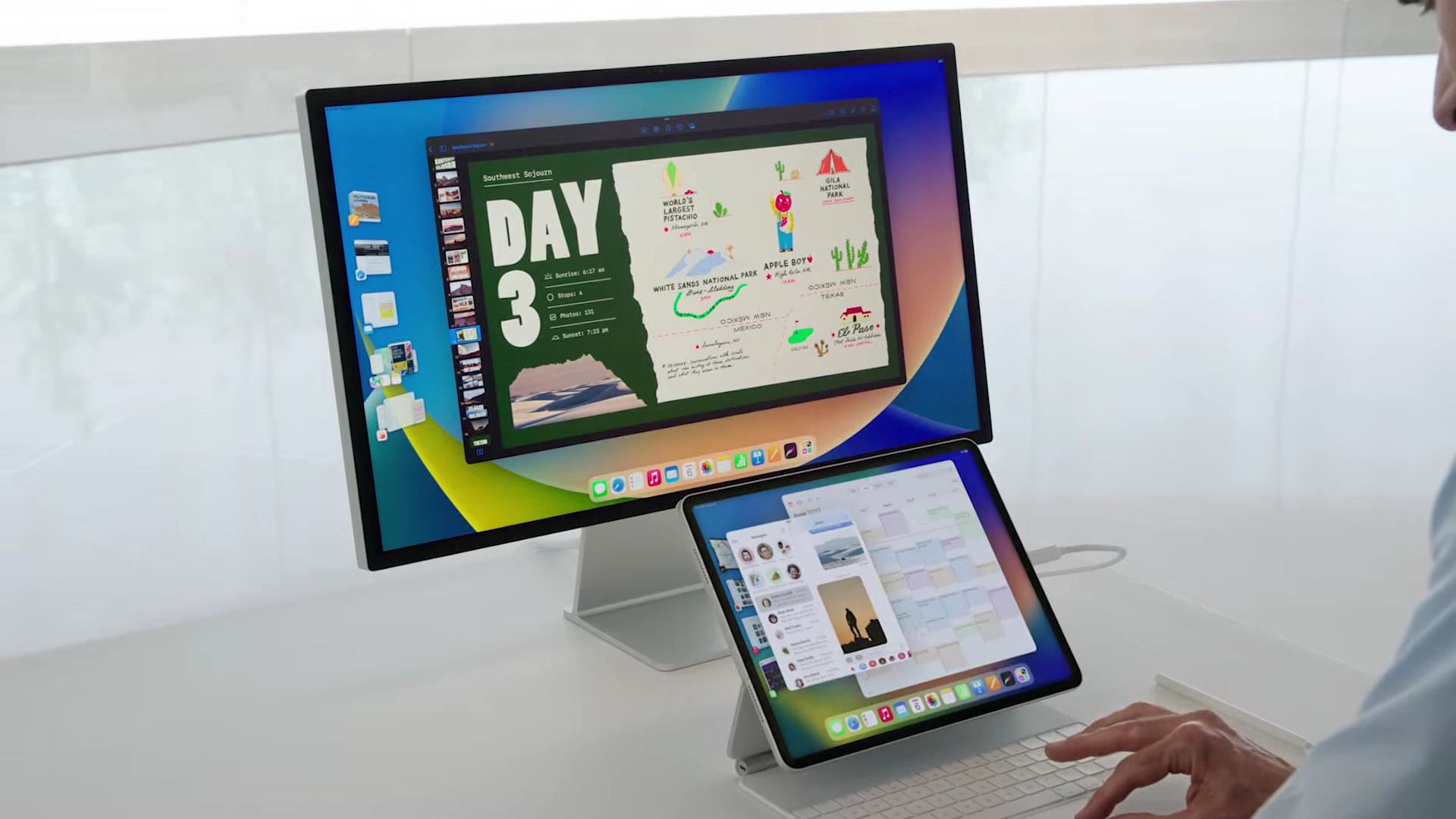Quick Links
If you're looking forward to features like Stage Manager and a more powerful Spotlight search coming to your Mac with macOS 13, you'll need to make sure the release is compatible with your machine. Here's which Mac devices can expect to receive the Ventura update on October 24, 2022.
macOS 13 Coming to Intel and Apple Silicon
If you haven't yet upgraded to a Mac with an Apple Silicon chip like the M1 or better, you'll be pleased to know that macOS 13 Ventura will still make an appearance on the older Intel architecture.
This includes the 2017 iMac, 2017 iMac Pro, 2019 Mac Pro, and 2018 Mac mini on the desktop. In terms of portable Mac models, the 2018 MacBook Air, 2017 MacBook Pro, and 2017 MacBook will also receive the update.
Apple's latest desktop addition, the Apple Studio, will also see the update having been released earlier in 2022.
This year's update sees Apple dropping support for several models, including the late 2015 iMac, late 2013 Mac Pro, and late 2014 Mac mini. MacBook models that didn't make the cut this time round include the early 2015 and 2017 MacBook Air, 2015 and 2016 MacBook Pro, and the early 2016 MacBook.
Based on these cuts, we're still a few major macOS revisions away from dropping Intel support entirely.
Some Features Require Newer M1 or Better Chips
While many of Apple's older machines will get the macOS 13 update, some features will be locked to newer Mac models. This isn't a new phenomenon and was common in the days of the Apple T2 chip.
This includes Apple's Live Captions accessibility feature which displays captions on the screen (requires the M1 or better), some enhanced dictation features, and the Reference Mode for 12.9-inch M1 iPad Pro users in Sidecar mode.
Further features may end up limited to the newer Mac models, especially those that rely heavily on the Neural Engine for machine learning.
Unsupported Mac Models Should Get Security Updates
As is the case with unsupported iPhone and iPad models, older Macs often get updates in the form of security patches long after they have been dropped by Apple for the latest and greatest features.
You can keep using your older version of macOS but be aware you may encounter incompatibility with some newer cross-platform features. If you're thinking of updating your Mac, check out the best MacBook and best desktop Mac recommendations for your replacement.



